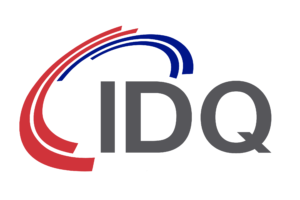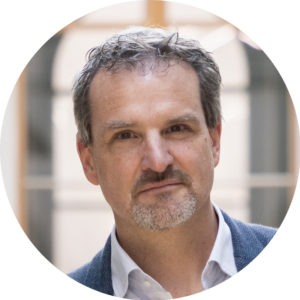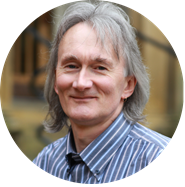The company

In the two decades since its inception as a spin out of the Group of Applied Physics at the University of Geneva in 2001, ID Quantique (IDQ) has become a world leading company in the fields of quantum-safe cryptography and quantum sensing, developing products aimed at future-proof data security. It provides complete systems for quantum safe network architectures, from key generation to key distribution, while also specialising in quantum random number generators and optical instrumentation products, mainly photon counters. Based in Switzerland, the company runs a truly global operation, with labs and offices around the world, and a client base spanning over 60 countries and representing many sectors: government services, finance, telecommunications and IoT etc. In 2018, SK Telecom, the South Korean leading ICT provider, bought a major stake in the company, thus strengthening its global outlook.
The partnership with the Hub
IDQ has been a major collaborator of the Hub since the start of Phase 1 of the UK National Quantum Technologies Programme. The company’s partnership with the Hub began when it became the supplier of the Quantum Key Distribution (QKD) systems underpinning the Hub’s metropolitan quantum network in Bristol. The company’s Clavis equipment was used to experimentally demonstrate for the first time quantum (QKD) secured Network Function Virtualisation (NFV) orchestration with Software Defined Networking (SDN) control. This replaces the need for purpose-built hardware appliances with standard off-the-shelf IT network infrastructure, resulting in an adaptable, manageable and cost-effective network architecture approach. Subsequent to this, IDQ was involved in supplying systems for the UKQNtel, an extension arm of the Hub’s UK Quantum Network (UKQN) linking Cambridge to the telecommunications sector at Adastral Park, and their equipment is also successfully used in conjunction with Toshiba systems in the rollout of the final leg of the UKQN, linking Cambridge to Bristol and demonstrating harmonious co-existence of QKD boxes provided by different suppliers.
Aside from their involvement as a major supplier in the core work of the Hub, IDQ contributed R&D expertise on two major Partnership Resource funded projects during Phase 1. The company collaborated with Hub partners the Universities of Leeds and York on the ‘Realistic Threat Models for Satellite QKD’ project which involved an in-depth security study of satellite QKD, examining various assumptions about the physical channel between satellites and ground stations and developing new capabilities through maximising the user exploitability of current and future quantum satellite missions. Further, IDQ provided access to their latest QRNG prototype for testing as part of the ‘Towards Assurance/ Certification of Physical QRNGs’ feasibility project, led by the University of York and NPL, which sought to develop the necessary theoretical and experimental understanding, expertise and techniques to test physical QRNGs. This project underpinned a successful, large-scale ISCF submission the following year involving numerous Hub partners (NPL acting as lead, the Universities of York and Kent, CryptaLabs, KETS Quantum, NuQuantum, Toshiba and of course IDQ) and seeking to address the need for authoritative certification of the unique randomness produced by QRNGs and to overcome the existing important technological barriers to their commercial and industrial exploitation.
Looking ahead
In addition to collaborating with the Hub, IDQ works in partnership with leading universities and research institutes worldwide and is involved in several national and international projects; along with engaging with the UK National Quantum Technologies Programme (UKNQTP), IDQ participates in numerous European Quantum Technology Flagship projects and others within South Korea.
IDQ is involved in the European Union Horizon 2020 funded OpenQKD project, along with Hub partners ADVA, BT, NPL, Toshiba and the University of Cambridge amongst others. The project will install test quantum communication infrastructures in several European countries and IDQ will provide QKD systems for the use cases in different locations throughout Europe. Recently, in collaboration with their partners, IDQ announced a successful demonstration of quantum secure transfer of sensitive medical data (including personal records and images) between two hospitals in Graz, Austria. IDQ and Hub partner ADVA were suppliers of the QKD and encryption hardware for this demonstration which has added weight to the number of successful trials of QKD for secure communications in the healthcare sector.
Looking further afield, IDQ’s systems are being used in numerous settings within South Korea. In collaboration with Korea Electric Power Research Institute (KEPCO), IDQ recently announced that they have deployed IDQ’s QKD systems to establish a 40km power communication network between substations in South Chungcheong Province. Further, alongside their long-term collaborator SK Broadband, Korea’s telecom media service provider, IDQ have announced that they have been selected to build a secure communication network between 48 government organizations across South Korea. IDQ will be supplying quantum-safe technologies to secure the network, which will be the largest operational QKD network in the world outside of China.
In May 2021, based on 14 years of commercial deployment and customer feedbacks, IDQ unveiled its 4th generation of QKD: the XG series.
Convinced that quantum technologies will play a major role in how we manage and secure data in the future, IDQ encourages organizations and governments to get quantum-ready now to safeguard business continuity. IDQ’s QRNG solutions are also in place around the world, with the Quantis QRNG chip having recently been miniaturized for use in mobile and IoT applications, and embedded in three smartphones, setting a new standard for phone and app security.
Speaking about IDQ’s partnership with the Hub, Grégoire Ribordy, CEO and co-founder of IDQ said:
“We are delighted of our collaboration with the Quantum Communications Hub, which has allowed IDQ to extend the reach of quantum secure communications across sectors and markets, within – and beyond – the UK and to work with world-class researchers on new uses and applications for this technology.”
 Hub Director, Professor Tim Spiller said:
Hub Director, Professor Tim Spiller said:
“Operation of commercial QKD equipment on the UK Quantum Network has been essential to demonstrate the practicality of secure, high speed data transmission, encrypted with quantum keys. The Hub partnership with IDQ has been crucial for this. We also very much value our collaboration with IDQ and NPL, to advance the assurance of QRNGs in the UK.”



